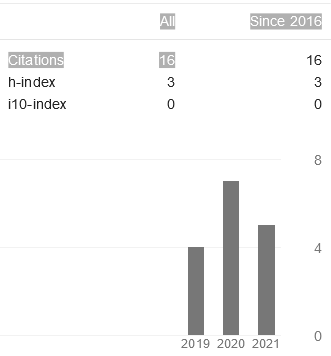Is Acceptance and Commitment Therapy Effective in Improving Emotion Regulation in Single Mothers?
Abstract
Being a single parent is not an easy challenge. The ability to manage emotions in single mothers who play the role of caring for children, carrying out domestic household affairs, and working to meet family needs must be truly organised so that all agendas run as planned. However, the reality shows that many single mothers physically and emotionally struggle. This research aims to determine the effectiveness of the ACT (acceptance and commitment therapy) method in improving emotional regulation in single mothers. This research applied a one-group pretest-posttest experimental design involving ten single mothers who were selected randomly. Pretest-posttest data collected using the Difficulties in Emotion Regulation Scale (DERS) by Gratz and Roemer (2004) showed a decrease in the mean. This means that there is an increase in the ability to regulate emotions. In addition, the results of the paired t-test showed that the decrease in score was significant (p) 0.00 (<0.05). With these results, ACT intervention can significantly improve emotional regulation in single mothers. The results of this research will be discussed further.
Copyright (c) 2023 Aulia Tiffany, Badrut Tamam Nur, Dwi Ratna, Novika Putri, Pingkan Putri, Abdul Haris Fitri Anto

This work is licensed under a Creative Commons Attribution-ShareAlike 4.0 International License.
Authors who publish with us agree to the following terms:
- Authors retain copyright and grant the publisher right of first publication with the work simultaneously licensed under a Creative Commons Attribution License that allows others to share the work with an acknowledgement of the work's authorship and initial publication in this proceeding.
- Authors are able to enter into separate, additional contractual arrangements for the non-exclusive distribution of the proceeding's published version of the work (e.g., post it to an institutional repository or publish it in a book), with an acknowledgement of its initial publication in this proceeding.
- Authors are permitted and encouraged to post their work online (e.g., in institutional repositories, pre-prints sites or on their website) prior to and during the submission process, as it can lead to productive exchanges, as well as earlier and greater dissemination of published work





_page-00011.jpg)
